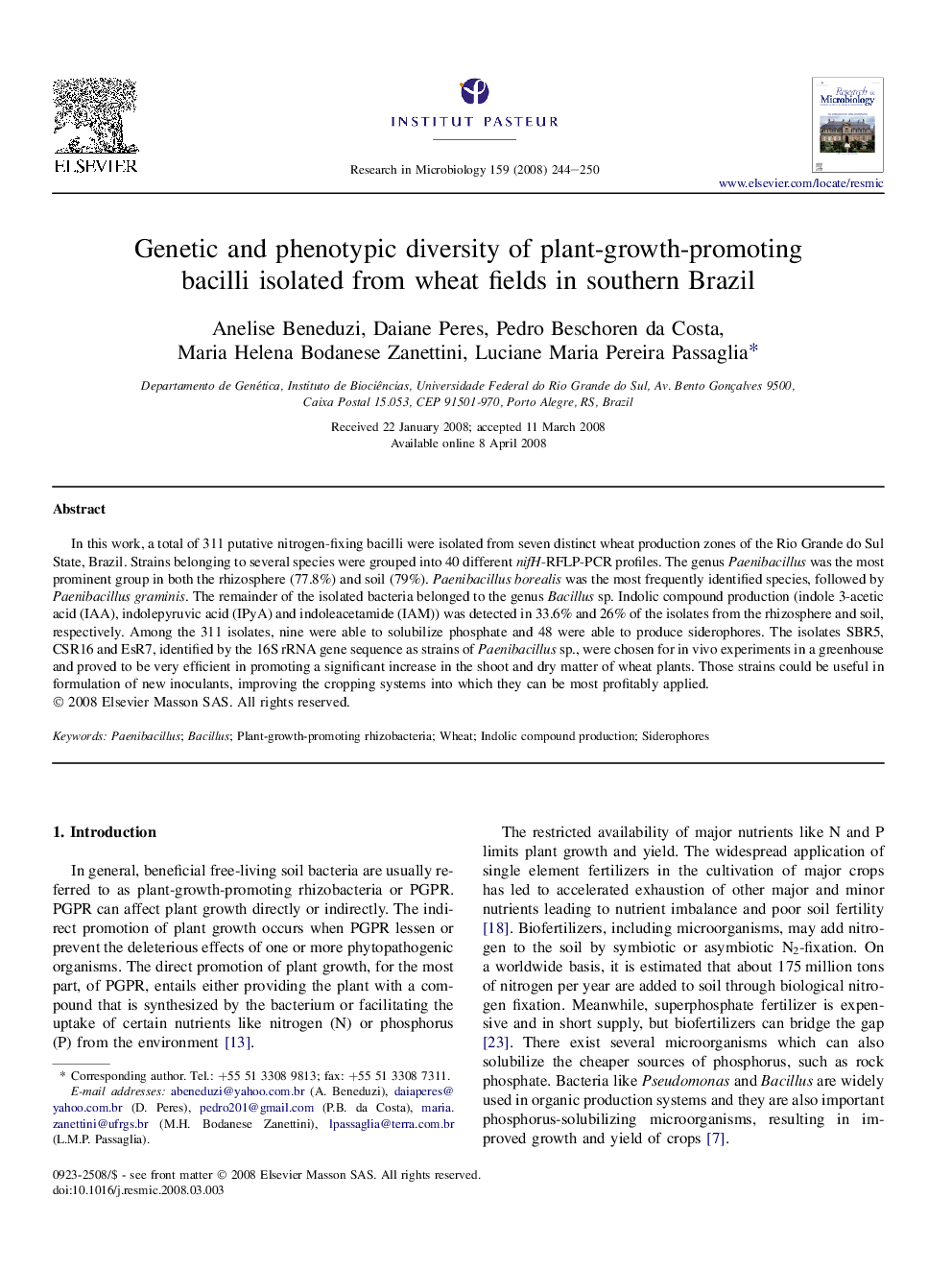| Article ID | Journal | Published Year | Pages | File Type |
|---|---|---|---|---|
| 4359537 | Research in Microbiology | 2008 | 7 Pages |
In this work, a total of 311 putative nitrogen-fixing bacilli were isolated from seven distinct wheat production zones of the Rio Grande do Sul State, Brazil. Strains belonging to several species were grouped into 40 different nifH-RFLP-PCR profiles. The genus Paenibacillus was the most prominent group in both the rhizosphere (77.8%) and soil (79%). Paenibacillus borealis was the most frequently identified species, followed by Paenibacillus graminis. The remainder of the isolated bacteria belonged to the genus Bacillus sp. Indolic compound production (indole 3-acetic acid (IAA), indolepyruvic acid (IPyA) and indoleacetamide (IAM)) was detected in 33.6% and 26% of the isolates from the rhizosphere and soil, respectively. Among the 311 isolates, nine were able to solubilize phosphate and 48 were able to produce siderophores. The isolates SBR5, CSR16 and EsR7, identified by the 16S rRNA gene sequence as strains of Paenibacillus sp., were chosen for in vivo experiments in a greenhouse and proved to be very efficient in promoting a significant increase in the shoot and dry matter of wheat plants. Those strains could be useful in formulation of new inoculants, improving the cropping systems into which they can be most profitably applied.
